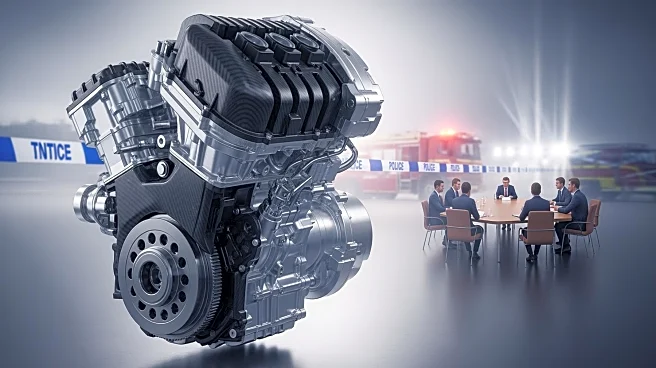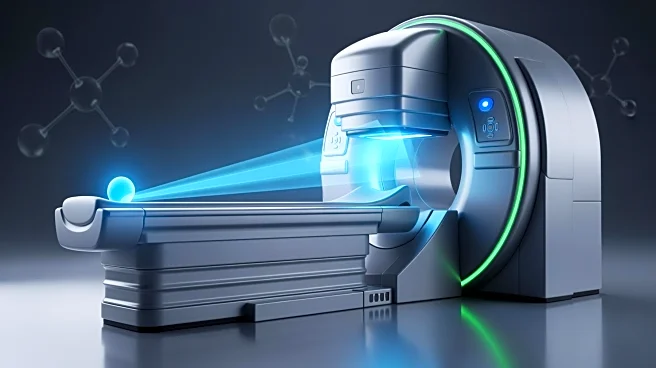What's Happening?
Mazda is advancing its efforts to make internal combustion engines more environmentally friendly by developing a 'Mobile Carbon Capture' system. This technology is designed to capture up to 20% of a vehicle's
exhaust gases, potentially reducing its carbon footprint. The system involves drying the captured exhaust gases and binding the carbon to a crystalline zeolite substrate. The stored CO2 could then be used as a raw material for producing recycled plastics. Mazda's Vision X-Coupe, showcased at the Japan Mobility Show, features this technology alongside a rotary engine that runs on biofuel derived from microalgae. This biofuel, made from Nannochloropsis, is said to cut CO2 emissions by up to 90% compared to traditional fossil fuels. Mazda aims to achieve a net carbon-negative result by combining the biofuel with the carbon-capture system.
Why It's Important?
Mazda's initiative represents a significant step in the automotive industry's efforts to reduce carbon emissions without fully transitioning to electric vehicles. By focusing on biofuels and carbon-capture technology, Mazda is exploring alternative pathways to decarbonization that could extend the life of internal combustion engines. This approach could benefit regions where electric vehicle infrastructure is underdeveloped or where consumers are hesitant to switch to electric cars. If successful, Mazda's technology could influence other automakers to invest in similar innovations, potentially leading to broader industry shifts towards more sustainable combustion engine solutions.
What's Next?
Mazda plans to conduct demonstration testing of its CO2 capture technology at the final round of this year's Super Taikyu Series. The company acknowledges that scaling up biofuel production is a major challenge, as it currently takes two weeks to refine just over one liter of fuel from a 1,000-liter culture tank. For the technology to become viable, infrastructure for collecting and reusing captured CO2 must be developed. Mazda's ongoing research and development efforts will determine whether this technology can be implemented on a larger scale, potentially influencing future automotive industry standards.
Beyond the Headlines
Mazda's approach highlights the potential for innovative solutions in reducing vehicle emissions without abandoning existing technologies. The use of microalgae-based biofuels and carbon-capture systems could pave the way for new environmental policies and regulations that support alternative decarbonization methods. This development also raises questions about the future of fuel production and the role of biofuels in achieving global emission reduction targets. As the automotive industry continues to evolve, Mazda's efforts may contribute to a broader understanding of sustainable practices and their implementation in traditional vehicle technologies.









